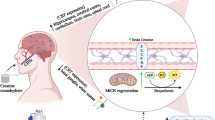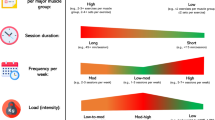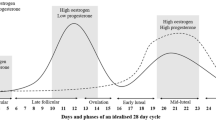Abstract
Purpose
The aim was to perform a meta-analysis of studies examining the effects of β-hydroxy-β-methylbutyrate (HMB) supplementation on hormonal adaptations after resistance training.
Methods
PubMed, Directory of Open Access Journals, Google Scholar and Web of Science were systematically searched up to June 2021 and updated in July 2022. The Cochrane Collaboration tool for evaluating the risk of bias was applied for assessing the studies' quality and then eight studies were included in the review. The random effects model was applied to estimate the overall effect.
Results
The HMB group showed greater adaptive changes in cortisol levels in comparison to placebo (PL) group after resistance training (ES; − 0.2 vs. 0.08, p = 0.041, ∆%; − 2.5 vs. 1.2, p = 0.1). Similarly, the HMB group indicated greater adaptations in testosterone (ES; 0.44 vs. 0.02, p = 0.02, ∆%; 13.4 vs. 3.2, p = 0.02) and IGF-1 (ES; 0.32 vs. 0.13, p = 0.001, ∆%; 3.75 vs. 1.75, p = 0.01) levels after training intervention. There was no significant difference between the HMB and PL groups in growth hormone changes following resistance training (ES; 0.77 vs. 0.2, p = 0.8, ∆%; 55.3 vs. 11.7, p = 0.43).
Conclusions
The results of this meta-analysis demonstrated the efficacy of HMB supplementation (3 g daily HMB for 7 weeks) to provide greater changes compared with placebo supplementation in resting hormonal concentrations (i.e., testosterone, cortisol and IGF-1).





Similar content being viewed by others

Change history
19 July 2023
A Correction to this paper has been published: https://doi.org/10.1007/s11332-023-01093-5
References
H¨akkinen K, Pakarinen A, (1993) Acute hormonal responses to two different fatiguing heavy-resistance protocols in male athletes. J Appl Physiol 74:882–887. https://doi.org/10.1152/jappl.1993.74.2.882
Hakkinen K, Pakarinen A (1994) Serum hormones and strength development during strength training in middle-aged and elderly males and females. Acta Physiol Scand 150:211–219. https://doi.org/10.1111/j.1748-1716.1994.tb09678.x
Kraemer WJ, Ratamess NA (2003) Endocrine responses and adaptations to strength and power training. In: Komi PV (ed) Strength and power in sport, 2nd edn. Blackwell Scientific Publications, Malden (MA), pp 361–386
Arazi H, Damirchi A, Asadi A (2013) Age-related muscle circumference, strength development and hormonal adaptations with 8 weeks moderate intensity resistance training. Annal Endocrinol 74:30–35. https://doi.org/10.1016/j.ando.2012.11.004
Wolfe RR (2001) Effects of amino acid intake on anabolic processes. Can J Appl Physiol 26(Suppl):S220-227. https://doi.org/10.1139/h2001-056
Blomstrand E, Eliasson J, Karlsson HK (2006) Branched-chain amino acids activate key enzymes in protein synthesis after physical exercise. J Nutr 136(1 Suppl):269S-273S. https://doi.org/10.1093/jn/136.1.269S
Arazi H, Rohani H, Ghiasi A (2015) Resistance training & beta-hydroxy-beta-methylbutirate supplementation on hormones. Braz J Sports Med 21:386–389. https://doi.org/10.1590/1517-869220152105113281
Wilson JM, Lowery RP, Joy JM (2014) The effects of 12 weeks of beta-hydroxy-beta-methylbutyrate free acid supplementation on muscle mass, strength and power in resistance-trained indeviduals: a randomized, double-blind, placebo-controlled study. Eur J Appl Physiol 114:1217–1227
Nissen SL, Sharp RL (2003) Effect of dietary supplements on lean mass and strength gains with resistance exercise: a meta-analysis. J Appl Physiol 94:651–659. https://doi.org/10.1152/japplphysiol.00755.2002
Townsend JR, Hoffman JR, Gonzalez AM (2015) Effects of β-hydroxy-β-methylbutyrate (HMB)-free acid ingestion and resistance exercise on the acute endocrine response. Int J Endocrinol. https://doi.org/10.1155/2015/856708
Hoffman JR, Cooper J, Wendell M (2004) Effects of β-hydroxy-β-methylbutyrate on power performance and indices of muscle damage and stress during high-intensity training. J Strength Cond Res 18:747–752. https://doi.org/10.1519/13973.1
Slater GJ, Jenkins D (2000) Beta-hydroxy-beta-methylbutyrate (HMB) supplementation and the promotion of muscle growth and strength. Sports Med 30:105–116. https://doi.org/10.2165/00007256-200030020-00004
Eley HL, Russel ST, Baxter JH (2007) Signaling pathways initiated by beta-hydroxy-betamethylbutyrate to attenuate the depression of protein synthesis in skeletal muscle in response to cachectic stimuli. Am J Physiol Endocrinol Metab 293:923–231. https://doi.org/10.1152/ajpendo.00314.2007
Fuller JC Jr, Sharp RL, Angus HF (2011) Free acid gel form of beta-hydroxy-beta-methylbutyrate (HMB) improves HMB clearance from plasma in human subjects compared with the calcium HMB salt. Br J Nutr 105:367–372. https://doi.org/10.1017/S0007114510003582
Gonzalez AM, Fragala MS, Jajtner AR (2014) Effects of β-hydroxy-β-methylbutyrate (HMB)-free acid and cold water immersion on expression of CR3 and MIP-1β following resistance exercise. Am J Physiol Regul Integr Comp Physiol 306:483–489. https://doi.org/10.1152/ajpregu.00542.2013
Wilson JM, Lowery RP, Joy JM (2012) β-hydroxy-β-methylbutyrate free acid reduces markers of exercise induced muscle damage and improve recovery in resistance trained men. Br J Nutr 110:538–44
Wilson JM, Kim J, Lee S (2009) Acute and timing effects of β-hydroxy-β-methylbutyrate (HMB) on indirect markers of skeletal muscle damage. Nutition Metab 6:1–8. https://doi.org/10.1186/1743-7075-6-6
Gonzalez AM, Stout JR, Jajtner AR (2009) Effects of β-hydroxy-β-methylbutyrate (HMB)-free acid and cold water immersion on post exercise markers of muscle damage. Amino Acids 46:1501–1511. https://doi.org/10.1007/s00726-014-1722-2
Asadi A, Arazi H, Suzuki K (2017) Effects of β-hydroxy-β-methylbutyrate-free acid supplementation on strength, power and hormonal adaptations following resistance training. Nutrients 9:1316. https://doi.org/10.3390/nu9121316.10.3390/nu9121316
Portal S, Zadik Z, Robinowitz J, Pilz-Burstein R, Adler-Portal D (2011) The effect of HMB supplementation on body composition, fitness, hormonal and inflammatory mediators in elite adolescent volleyball players: a prospective randomized, double-blind, placebo-controlled study. Eur J Appl Physiol 111:2261–2269. https://doi.org/10.1007/s00421-011-1855-x
Durkalec-Michalski K, Jeszka J (2015) The efficacy of a β-hydroxy-β-methylbutyrate supplementation on physical capacity, body composition and biochemical markers in elite rowers: a randomised, double-blind, placebocontrolled crossover study. J Int Soc Sports Nutr 12:3. https://doi.org/10.1186/s12970-015-0092-9
Durkalec-Michalski K, Jeszka J, Podgorski T (2017) The effect of a 12-week beta-hydroxy-beta-methylbutyrate (HMB) supplementation on highly-trained combat sports athletes: a randomised, double-blind, placebo-controlled crossover study. Nutrients 9:753. https://doi.org/10.3390/nu9070753.10.3390/nu9070753
Fernández-Landa J, Fernández-Lázaro D, Calleja-González J, Caballero-García A, Córdova A (2020) Long term effects of combination of creatine monohydrate plus HMB on exercise induced muscle damage and anabolic/catabolic hormones in elite male endurance athletes. Biomolecules 10:140. https://doi.org/10.3390/biom10010140.10.3390/biom10010140
The PRISMA 2020 statement: An updated guideline for reporting systematic reviews.
Higgins JPT, Altman DG, Gotzsche PC, Juni P, Moher D, Oxman AD, Savovic J, Schulz KF, Weeks L, Sterne JAC (2011) The cochrane collaboration’s tool for assessing risk of bias in randomised trials. BMJ 343:d5928. https://doi.org/10.1136/bmj.d5928
Hedges LV, Olkin I (1985) Statistical methods for meta-analysis. Statist Med. https://doi.org/10.1002/sim.650
Tobias A (1999) Assessing the influence of a single study in the meta-anyalysis estimate. Stata Tech Bull 8(47):15–17
Saez-Saez de Villarreal E, Requena B, Newton RU (2010) Does plyometric training improve strength performance? a meta-analysis. J Sci Med Sport 13:513–522. https://doi.org/10.1016/j.jsams.2009.08.005
Author information
Authors and Affiliations
Corresponding author
Ethics declarations
Conflict of interest
Abolfazl shakibaee, Mahdi gholizadeh, Hossein Shivani, Mohammad Samadi: no conflict of interest.
Ethical approval
This article does not contain any studies with human participants or animals performed by any of the authors.
Informed consent
For this type of study formal consent is not required.
Additional information
Publisher's Note
Springer Nature remains neutral with regard to jurisdictional claims in published maps and institutional affiliations.
Rights and permissions
Springer Nature or its licensor (e.g. a society or other partner) holds exclusive rights to this article under a publishing agreement with the author(s) or other rightsholder(s); author self-archiving of the accepted manuscript version of this article is solely governed by the terms of such publishing agreement and applicable law.
About this article
Cite this article
Shakibaee, A., Gholizadeh, M., Shirvani, H. et al. Effects of HMB supplementation on hormonal adaptations following resistance training: a systematic review and meta-analysis. Sport Sci Health 19, 1083–1092 (2023). https://doi.org/10.1007/s11332-023-01081-9
Received:
Accepted:
Published:
Issue Date:
DOI: https://doi.org/10.1007/s11332-023-01081-9



